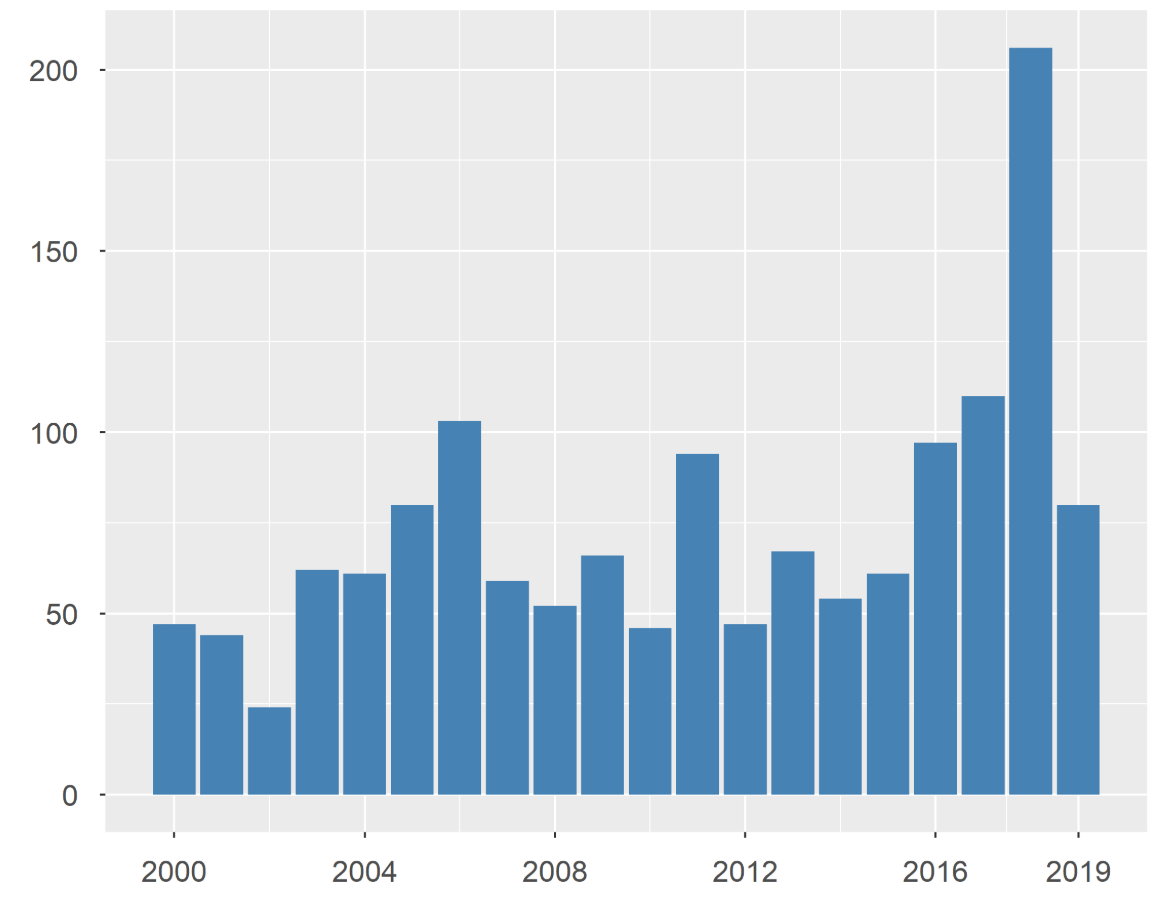
Tick-transmitted diseases fall sharply

Cases of tick-borne diseases, including encephalitis and Lyme disease, almost halved in Switzerland in the first six months of 2019 compared with the same period last year.
Figures for 2019 so far show 127 cases of meningoencephalitis, compared with 218 for the first half of 2018. Those showing symptoms of Lyme disease fell from 10,000 to 3,600.
But Daniel Koch, head of communicable diseases at the Federal Office for Public Health (FOPH), told the Keystone-SDA news agency that while the numbers mark a big fall from 2018, they are closer to the average over a longer time period.
Indeed, since 2000, numbers of tick-borne encephalitis declared in the first six months of the year varied between 24 and 120, FOPH figures show. In 2018, the number was 206.

Campaign
If the cause of last year’s peak remains unclear, the subsequent drop in 2019 is also difficult to explain, though it has coincided with a concerted campaign by authorities to encourage vaccination among the population.
Tick-borne encephalitis, a debilitating and potentially fatal disease that attacks the nervous system, is preventable through a jab. Lyme disease cannot be prevented, however, and if not tackled by antibiotics at an early stage can bring lasting complications.
To reduce the risk of picking up tick-borne diseases, authorities recommend avoiding particularly at-risk areas, for example bushes and tall grass, as well as using an insect repellent and wearing clothing that covers the arms, legs and feet.

In compliance with the JTI standards
More: SWI swissinfo.ch certified by the Journalism Trust Initiative

















![The four-metre-long painting "Sonntag der Bergbauern" [Sunday of the Mountain Farmers, 1923-24/26] had to be removed by a crane from the German Chancellery in Berlin for the exhibition in Bern.](https://www.swissinfo.ch/content/wp-content/uploads/sites/13/2025/12/01_Pressebild_KirchnerxKirchner.jpg?ver=a45b19f3)











You can find an overview of ongoing debates with our journalists here . Please join us!
If you want to start a conversation about a topic raised in this article or want to report factual errors, email us at english@swissinfo.ch.